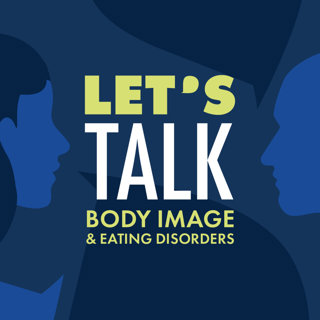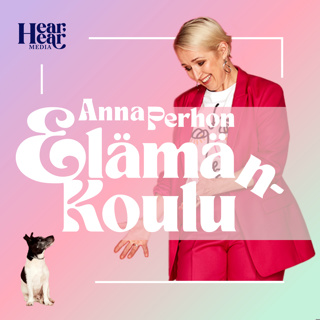
ANZAED 23: Still more to learn from the latest in research
At the recent Australia and New Zealand Academy for Eating Disorders conference on the Gold Coast, we spoke to experts about new and groundbreaking insights into eating disorders. This episode is the second in a series of two. Dr Simon Wilksch unpacks his work around the significant financial and emotional costs that families face when caring for children with eating disorders and, to improve outcomes, why he recommends that parents and caregivers receive support too. Monash’s Courney McLean talks about the complex relationship between vegetarianism, veganism, and eating disorders, and the tool she’s developing to assess motivation for adopting to a plant-based diet. Her work points the way to improved diagnosis and care for vegetarians and vegans experiencing eating disorders. Belinda Chelius, CEO of Eating Disorders Queensland, explains her evidence-based rationale for including lived experience practitioners in eating disorder treatment, and why lived experience has always provided the infrastructure for EDQs work. Finally, Dr. Renee Denham, a child and adolescent psychiatrist based in Brisbane, describes the interplay between attention deficit hyperactivity disorder (ADHD) and restrictive eating, and how we can identify and help those kids affected. These conversations reveal the multifaceted nature of eating disorders and the innovative approaches being taken to address them. Find out more about ANZAED Find out more about Simon Wilksch Find out more about Courtney McLean Find out more about Belinda Chelius Find out more about Renee DenhamSee omnystudio.com/listener for privacy information.
31 Loka 202332min

In depth with lived experience advocate Shannon Calvert
The key to understanding any mental illness is to listen to those who have been through it. Not only can the voices of those with lived experience of an eating disorder help those who are currently impacted, but they also, importantly, serve to educate the health professionals who will provide care. The evidence is clear: Services that are co-designed with those who know their own situation will always have the best chance of success. That’s why the voice of lived experience is being embedded in most new treatment initiatives, including the recently launched and much heralded National Eating Disorders Strategy of 2023 – 2033. Our guest, Shannon Calvert, experienced a longstanding and severe eating disorder and through the ups and downs of her own journey has since dedicated her life in recovery as a much needed voice and advocate for others. “Through my own recovery, there were health professionals that didn’t want to do eating disorders or didn’t know how to do eating disorders. It was too complex, too challenging for them. That shifted my perspective in terms of how we can do things differently", she says. Today, Shannon collaborates with all parts of the sector -- health professionals, researchers, and policymakers to develop person-centered, compassionate and integrated health care for better outcomes for everyone. Learn more about Shannon Calvert Learn more about the National Strategy for eating disordersSee omnystudio.com/listener for privacy information.
3 Loka 202324min

The latest in diagnosis and care from the annual ANZAED conference
We snuck into the annual Australia and New Zealand Academy for Eating Disorders (ANZAED) conference to illuminate the future of eating disorder diagnosis and care. We recorded on-site at the conference, where we asked various speakers to give us a taste of their research for the sake of all those who’d be interested but couldn’t be there. Segment 1: Reviewing current treatment approachesDr. Anthea Fursland, a distinguished clinical psychologist for the past 40 years, shares a candid perspective on the strides made in treatment, especially for Anorexia Nervosa, but offers insights about the gap between new understandings and legacy approaches to care. Segment 2: NDIS engagement for people with eating disordersHilary Smith, a National Manager at the National Eating Disorder Collaboration (NEDC), talks about what may be required and what we still need to know for people with eating disorders to access support from the National Disability Insurance Scheme (NDIS). Segment 3: Body dysmorphic disorder and cosmetic surgeryThe point where body dysmorphic disorder and cosmetic surgery intersect is where researcher Dr Toni Pikoos does much of her work. She’s been deeply involved in crafting new, enforceable guidelines to protect the psychological safety of patients. Segment 4: The possibility of laws to protect body imageMarilyn Bromberg is an Associate Professor of Law at UWA and an expert on laws that discourage content researchers understand to negatively impact body image. While there is some precedent in other parts of the world, we can do more in Australia. Segment 5: Dealing with an eating disorders crisis and emergency careMental health occupational therapist Genevieve Pepin presented on “Eating disorders, carers, and the emergency department: A recipe for disaster.” It’s a carer’s worst nightmare, and Genevieve tells us just how bad it can get and how we can make the experience less traumatic for families. This is the first of two episodes covering the conference. Look out for Part 2 in October 23. FIND OUT MORE ABOUT THE ANNUAL ANZAED CONFERENCE FIND OUT MORE ABOUT ANTHEA FURSLAND FIND OUT MORE ABOUT NEDC’S WORK AROUND THE NDIS FIND OUT MORE ABOUT TONI PIKOOS FIND OUT MORE ABOUT MARILYN BROMBERG FIND OUT MORE ABOUT GENEVIEVE PEPINSee omnystudio.com/listener for privacy information.
5 Syys 202330min

In depth with former helpline manager Juliette Thomson on person-centred recovery
According to the Diagnostic and Statistical Manual of Mental Disorders, the DSM-V–also known as the psychiatrist’s bible–there are only four official diagnoses for eating disorders. Though experts expect that number to double in the next edition, the reasons someone might develop or maintain an eating disorder are as variable as the number of people affected. This is because eating disorders are not just a set of behaviours. They are a way of coping with difficult things. Psychologist and former Butterfly Helpline Manager, Juliette Thomson, specialises in a person-centred, holistic approach to recovery. “An eating disorder is often the tip of an iceberg,” she says, “Underneath, there is likely a lot more going on for a person about themselves in their lives.” To help someone struggling with an eating disorder, a therapist will seek to understand their psychological and social reality. That’s why there shouldn’t be a one-size-fits-all approach; people need treatment plans tailored to their own situation. In addition, insists Juliette, you don’t need to be certain that you even want to recover, as a good therapist should support you wherever you’re at. Listen to Juliette explain why she tells clients that recovery may be the hardest thing they’ll ever do in their life, and why it will also be the most rewarding.See omnystudio.com/listener for privacy information.
1 Elo 202325min

What medications can help you recover from an eating disorder?
There’s a medication for almost every illness, and that’s true for mental illnesses,including eating disorders. But how do they work, and how do they help? We’relaunching our fourth season of Butterfly: Let’s Talk with an investigation intomedications used to treat people with eating disorders, including some brand-newdevelopments that could offer hope. “Many people with an eating disorder will be prescribed some kind of psychiatricmedication,” says psychiatrist Professor Richard Newton, who has been working inthe sector since the 1980s. “But most of those treatments will be for associatedconcerns such as anxiety, depression, poor sleep, hearing voices, obsessive-compulsive disorder, etc. They’re more adjunct interventions and are not for theeating disorder itself.” Having suffered from an eating disorder since age 11, Emma has triedseveral different prescriptions. “I was first given a psychiatric medication when Iwas 14,” she tells us. “It was an antidepressant, and it helped. It showed me thatthere was something chemically not quite right.” Later, she was prescribedantipsychotics, that she says also helped. In this podcast, we talk about psilocybin, the psychedelic chemical associated withmagic mushrooms. "Psychedelic drugs offer an incredible way to access an altered state of consciousness that can change how people think about their behaviour,” says neurologist and researcher Dr Claire Foldi. While psilocybin is stillundergoing clinical trials, she's upbeat about its potential for eating disorders. We also go into depth with Dr Kristi Griffiths, who has studied Vyvanse, a stimulanttraditionally prescribed for ADHD, now being used to treat people with BulimiaNervosa and Binge Eating Disorder. “In one randomized study," she says, "Peoplewho took Vyvance over a set period had around a 4% relapse rate. That's apretty low rate.” Listen to our experts and Emma, who believes that she is well into recovery thanks in part to her medications. Perhaps this episode will offer insights for you, your client’s or your loved one’s treatment plan.See omnystudio.com/listener for privacy information.
4 Heinä 202336min

What 1600 young people told us about their body image
The results from the new Butterfly Body Kind Youth Survey are in, and they’re concerning. More than 1600 young people aged 12-18 took part in the survey, with at least half saying they were dissatisfied with their bodies. About one in three kids say they’re completely dissatisfied with the way that they look. "The problem is there’s a real cost to young people's body dissatisfaction," says Helen Bird, Butterfly's Education Manager. "A significant number limit their involvement in everyday activities like sports, going to the beach, hanging out with their friends, or going clothes shopping. It’s also impacting their learning. Something like 50% of young people say that their body image has stopped them from putting their hands up in class, focusing on their schoolwork and, for some, even going to school." In the latest episode of Let’s Talk, our host Sam Ikin talks to Helen, mental health counsellor Stella Ladikos and social worker AJ Williams-Tchen who all work closely with young people and listen to their concerns. He also chats with two high school students who aren’t surprised by the survey results but who make it quite clear that adults and institutions need to be doing a lot more to support them.See omnystudio.com/listener for privacy information.
6 Kesä 202327min

Meet the three MPs committed to better care for eating disorders
In February this year, ABC dedicated their flagship investigative report, Four Corners, to eating disorders. This was, in part, because of a few Members of Parliament. The MPs are Teal Independent Zoe Daniel, Liberal Andrew Wallace and Labor’s Susan Templeman. Based on continuous calls for help from their constituents, the three resolved to act for change. To start, they’re co-chairing a new Parliamentary Friends Group for Eating Disorder Awareness to highlight the critical need for more care and support. “We've been absolutely avalanched in my office by families and people from across the country, saying that it really needs action,” says Zoe Daniel. “And it’s been interesting to have conversations with other MPs. Eating disorders aren't confined to the stereotypical groups.” Susan Templeman agrees. “I don't think there's an elected office in the country where someone hasn't phoned in at the end of their tether, saying, I don't know what to do. My son or my daughter or my partner is suffering from an eating disorder, and I can't get the help that I need.” Andrew Wallace was once in a Cabinet meeting where a senior health official assured the Prime Minister that Australia was getting on top of the issue. “I said, sorry, Prime Minister, but I totally disagree with what you've just been told,” he recalls. “We have absolutely no idea how you first suffer from it, why you suffer from it and, importantly, how you best treat it.” As a carer, Wallace speaks from his own experience, as does Susan Templeman. Eating disorders are mental health issues that do not discriminate. And as more policymakers lean in to educate their political peers, the more hope there will be for real investment in care. See omnystudio.com/listener for privacy information.
9 Touko 202326min

It still hurts: Appearance-based teasing when you're a kid
Many of us remember being teased about our appearance in primary school because it happens - a lot. Perhaps we don’t think about it much now, but chances are the experience has left a mark on who we’ve become. The research is clear: Appearance-based teasing is a key risk factor for a child to develop body dissatisfaction which, in turn, can negatively impact their life outcomes, including their mental health, career, and relationships. Body dissatisfaction is also one of the highest risk factors for eating disorders. "There's research showing children as young as eight describing their weight and size as a problem because they've experienced appearance-based teasing," says expert researcher Dr Steph Damiano. Appearance-based teasing, which is rife, is also related to more intense disordered attitudes and behaviours around food." To a large degree, this problem is related to cultural stigmas around size and weight, which can be internalised by children as young as three. "I was always naturally a very low weight and also very tall for my age," says mental health worker Jenna Abbasi, who has lived this firsthand. "I was teased about my size and height, my colour, my teeth, my hair, my nose...I was labelled as the skinniest person in school and a rabbit. It's still very difficult for me not to be self-conscious about my body because the social anxiety from that time has never left." Psychologist Louise Adams, who counselled clients on body acceptance long before she had her own children, has worked hard to protect them. However, she admits her larger-bodied daughter experienced the full brunt of fat-phobic comments in primary school and still suffers from it. To address all of this, Butterfly Body Bright was developed in association with experts from La Trobe University to promote body-positive peer environments for younger kids. "The program shifts all of our mindsets," says teacher and pastoral care worker Sarah Price. "We’re not only teaching kids about the impact of what they say to other people but also what they can say to themselves." "The full program is evidence-based, easy to execute, and comprehensive about developing a positive body image,” says Dr Damiano. Regarding appearance-based teasing, the teachings are all about encouraging children to treat each others' bodies with respect and to stand up for themselves and others in the face of hurtful comments.See omnystudio.com/listener for privacy information.
11 Huhti 202323min





















